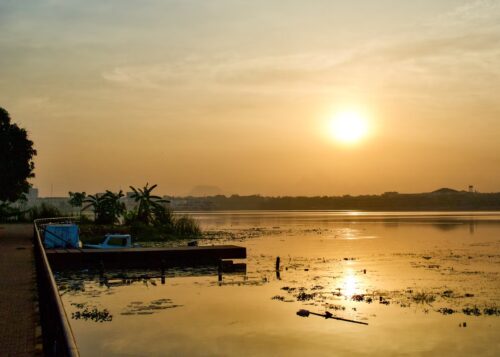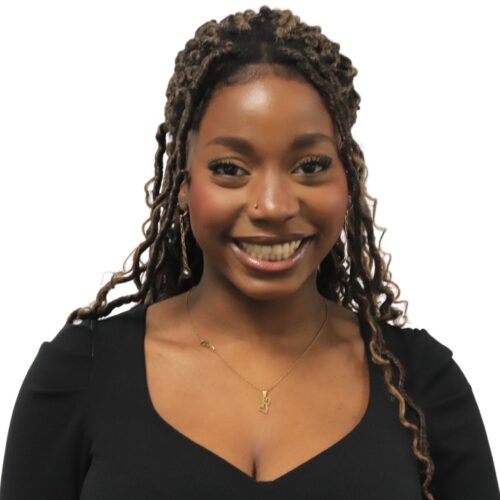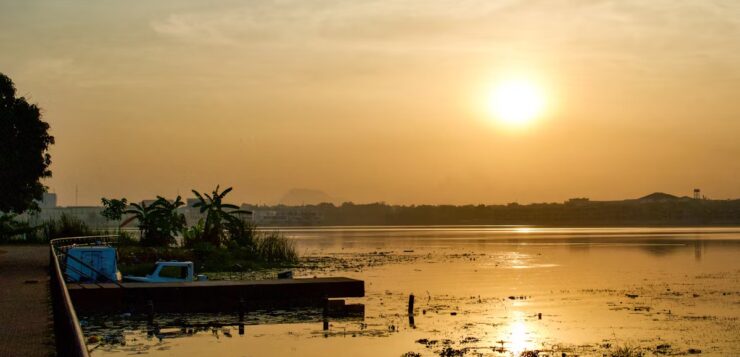
How do you accept that your closet is a country, that the place that made you into the person you are, is where you can’t be yourself?
Immigration is difficult enough when you’re searching for a better life and know that there’s no hope for that in the place you came from, and when paired with a search for safety in a home country that offers a life of repression and danger, it takes on an added layer of difficulty.
I left Nigeria at eighteen years old to get my university degree. Many factors went into the decision—a better education, improved career prospects, a more structured system, and countless other opportunities. Getting to live freely in my queerness was not a factor I took into consideration, but it’s one of the strongest reasons behind my secret desire to leave.
My mum’s reaction to that kiss was only the beginning of the homophobia that was pushed on me for the rest of my childhood and adolescence in Nigeria. From that first moment to the day I moved, I couldn’t escape hatred for queer people.
When same-sex marriage was legalized in America in 2015, everyone from family to teachers talked about how America was the devil’s playground and a disgusting place for letting queer people live freely. At nearly every religious service I attended, leaders would find a way to work homophobia into their sermons.
All I desired at the time was to belong and to be just like everyone else, so I joined in on the hatred, pushing my truth to the back of my mind. When arguments about the basic human rights of queer people were brought to the table, I was part of the ‘I don’t think any harm should come to them, but I disagree with their lifestyle’ brigade. I clung to religion whenever my own desires came to the surface.
I avoided any moments that highlighted my true feelings with rigor. The friends I wanted to spend every waking moment with were just people I cared about platonically. The women I lusted after was just a person I admired because of her objective beauty. I internally reinforced the religious messaging I was told my whole life.
But the same religious messaging I pushed myself to internalize was also used to justify the violence against queer people, and even at my highest points of denial, I couldn’t find a justification for that. My more feminine male peers in boarding school were bullied aggressively, with slurs hurled at them and were constant victims of humiliation. There was also a barrage of videos of gay men who were found in different parts of Nigeria and subjected to all sorts of brutality that went viral on a regular basis.
When I got to my mid-teens, I had enough exposure to unlearn some of the ideas I was socialized with, and eventually, I started to poke holes in the dominant rhetoric. Violence is never acceptable but when queer people are the recipients, the perpetrators are doing God’s work? Everyone is equal in the eyes of God but not people in the LGBTQIA+ community? My questions were incessant, and every religious leader I posed them to failed to provide me with real answers; I was often told God would make it clear to me, I just had to keep the faith.
By the time I had finished sixth grade and my departure from Nigeria was imminent, my doubts were at an all-time high, and my faith withered with the more investigations I carried out. The #endsars protests in October 2020 were a massive moment of truth for me. Nigerian youth all over the country protested the police brutality they had been subjected to by the Special Anti-Robbery Squad and rallied together for the first time to stand up against our corrupt government’s enabling of violence. I was inspired that my fellow young people could be hopeful for my country after all.
During the movement, queer people also took to the streets to say enough is enough for the violence they had been subjected to at the hands of SARS, and Nigerians turned against them. The narrative was that if liberation involved queer people, it wasn’t worth having. It was a harsh reminder of how deep this hatred went and as my own feelings became more unavoidable, I started to realize that there was likely no place for me to exist fully in the place I’d called home.
Being a bisexual woman gave me a lot of space to avoid truths about myself throughout my adolescence in Nigeria but when I left for England, the truths bubbled to the surface as though they could sense they had the space to be freed.
My turning point came without my knowledge. Suddenly, I spoke openly about my desires to friends and gradually changed my appearance to match the way I had always felt. The doubts I had about religious justifications for cruelty toward queer people crystallized into a lack of faith entirely. I let go of purity culture and internalized homophobia, and was the freest I had ever felt in my life. When I built my own community of queer people, I felt bathed in an understanding of solidarity that I had been missing. As more time passed, I leaned further into my identity and could no longer imagine returning home permanently.
When I finished my degree, conversations about what I wanted the rest of my life to look like suddenly came up from so many angles, and it became apparent to me that going back to Nigeria was never going to be an option. The state of the country plays a massive role in this, but many of my friends felt that despite Nigeria’s difficulties, they could build their careers in the UK and eventually go back to live in Nigeria. But for me, and a lot of my queer Nigerian friends, this could never be the case.
After working so hard to push out of the mental boxes from growing up in a highly conservative and homophobic system, it seemed almost ridiculous to subject myself to the pain of existing in those systems ever again and in making that choice— there’s so much that must be given up.
I had never felt my race until I arrived in England and I had never really thought of myself as a minority. Growing up as part of a majority tribe in the most populous African nation shielded me from racist experiences. I was sheltered by my privilege and coming to England changed me because it became a fundamental part of my reality.
Having a world that was built for me was another benefit I took for granted. When I went out in Nigeria, I never had to wonder if I would be welcomed in a space, if the food would be catered to my palate, or if the music would be enjoyable. I could move freely with the understanding that no matter where I went, it was made with people like me in mind. That hasn’t been the case in England, as there is a constant need to double check whether a space is for me before I can even feel safe enough to step in.
Then there’s the family aspect. Knowing that my parents, the two people who love me the most in the world, aren’t here to make my life easier in the way they did for my first eighteen years, is probably the hardest part of it all. It’s the little things, like having someone to drive your stuff to your new place when you move, knowing there’s a place where you can always eat your comfort food for free, or sinking into your mum’s arms after a difficult day.
Each day, I’m aware of everything I’m giving up, and while queerness isn’t the only motivator, it’s the one I can’t seem to shake. I don’t know that I could ever belong in a place where violence towards queer people is met with celebration. Sometimes it feels like choosing between being Black and being queer, but it’s not. Because while racism persists in the UK, the system does not explicitly encourage cruelty towards Black people the way that Nigeria’s system does to queer people.
As my first visit to Nigeria in years draws closer, I already find myself struggling with the fact that I’ll likely need to mask certain parts of myself and it’s confronted me with the fact that I’m not as ‘out’ as I’ve thought myself to be.
 Damisola Sulaiman is a London-based Nigerian journalist and writer. She describes herself as someone who can lend words to any medium and subject matter. Her work has been featured in QueerAF, Naked Politics, 7Hollywood, London Runway and her personal Medium, where she posts a weekly lifestyle blog.
Damisola Sulaiman is a London-based Nigerian journalist and writer. She describes herself as someone who can lend words to any medium and subject matter. Her work has been featured in QueerAF, Naked Politics, 7Hollywood, London Runway and her personal Medium, where she posts a weekly lifestyle blog.




